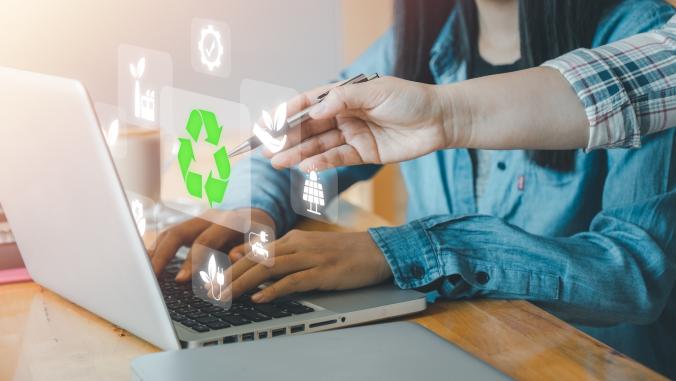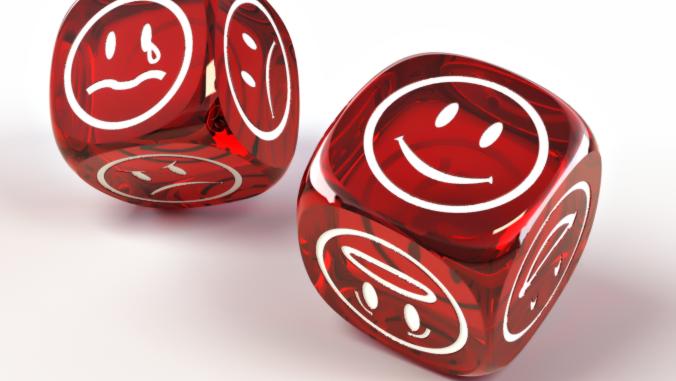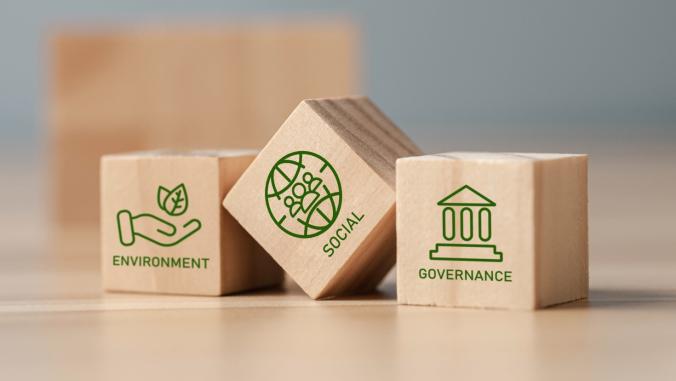8 companies to watch in the circular economy
The circular economy is anything but theoretical — startups and big companies alike already are experimenting with the concept to forge new business models and buttress existing ones. Here are eight of the most notable.

By now, most everyone roaming the realm of corporate sustainability has heard the term "circular economy" — maybe a few more times than they’d care to recall. But it’s much more than just another buzzword, as the circular economy has the potential to solve the world’s mounting waste problem by doing away with the very concept of waste altogether.
By creating production models that reduce reliance on raw materials through continuously cycling materials of all types back into supply chains, companies stand to gain a business advantage by steeling themselves against fluctuating commodity markets and other future shocks.
While it makes long-term business and environmental sense, transitioning from our current "take-make-waste" linear economy to a more "circular" one that views waste as technical nutrients isn’t easy. Challenges remain, including making the internal business case for it, updating antiquated public policies to promote circular strategies and educating consumers about the merits.
But the circular economy is anything but theoretical — startups and big companies alike already are experimenting with the concept to forge new business models and buttress existing ones.
But the circular economy is anything but theoretical — startups and big companies alike already are experimenting with the concept to forge new business models and buttress existing ones. Here are eight of the most notable:
Startups
This Pittsburgh-based Certified B Corporation transforms plastic bottles from the streets and canals of Haiti and Honduras into "responsible fabric" used in consumer products. In addition to helping to reduce trash in Haiti and Honduras by creating upcycled alternatives to waste, the company also strives to provide quality to locals in impoverished communities.
Thread recently partnered with Timberland to provide upcycled materials for use in the apparel brand's footwear. To add another level of transparency, each yard of Thread fabric is traced and tracked at every step of the upcycling process, from bottle collection to fabric creation to the delivery of the fabric bolt to the manufacturer.
Launched in 2009, Looptworks repurposes abandoned materials into "meaningful, long-lasting and limited edition products." By reusing the world’s pre-consumer excess, the Portland-based company says it aims to rid the world of waste while inspiring a generation to reduce its impact on the planet. The line includes jackets, hoodies, skirts, shirts and graphic T-shirts for both men and women.
Having partnered with Southwest Airlines in 2014 to upcycle its seat leather into soccer balls, bags and other products, Looptworks continued onward last year with Alaska Airlines, turning the airline’s used seats into handbags and purses. Looptworks collects, sorts and cleans the seat materials, designs and develops the upcycled products, produces, markets and sells them.
This firm applies circular economic principles to carbon by turning waste carbon from "a liability to an opportunity," using its patented microbe technology to convert carbon-rich wastes and residues into valuable fuel and chemical products through a process of gas fermentation. LanzaTech targets carbon produced by industries such as steel manufacturing, oil refining and chemical production, as well as gases generated by gasification of forestry and agricultural residues and municipal waste.
LanzaTech’s process can be likened to a brewery, the company says, but instead of sugars and yeast to make beer, the company uses microbes and waste gases to make fuels and chemicals. The process captures and recycles waste gases before they are emitted as greenhouse gases, reducing pollutants and particulate emissions by over 85 percent, while simultaneously driving economic growth.
While not exactly a startup anymore, Method is one of the largest and fastest-growing "green" cleaning products companies in its field. The firm embraces circular economy principles by using infinitely recyclable materials, using renewable energy and cradle-to-cradle certification. Products include concentrated detergent and its Ocean Plastic Bottle project, using discarded plastic from the sea to make its packaging.
Big companies
In recognition of the rising e-waste epidemic — rapid technology innovation and ever-shortening product lifespans are contributed to nearly 42 million tons in 2014 — Dell is making some of the first inroads to a more "circular" supply chain. Late last year, the company announced progress against its circular economy initiatives, including the expansion of its closed-loop recycled plastic supply chain and the introduction of reclaimed carbon fiber source materials into some of its products. As part of its 2020 Legacy of Good Plan, Dell also has established two objectives tied to cutting down on e-waste: using 50 million pounds of recycled materials and recovering 2 billion pounds of e-waste by 2020.
With around 24 billion pounds of clothing, shoes and textiles finding their way into U.S. landfills each year — including untold tons of jeans — Levi’s is working on some interesting short- and long-term circular economy initiatives aimed at taking a chunk out of this statistic. Every Levi’s store accepts old clothes and shoes of any brand, which the company collects and repurposes or recycles with its partner, I:CO. The collected clothes are transformed into things such as insulation for buildings, cushioning material and new fibers for clothing.
The collected clothes are transformed into things such as insulation for buildings, cushioning material and new fibers for clothing.
Meanwhile, Levi's is working to establish an infrastructure that supports closed loop products by 2020. Eventually, the company hopes to be able to recycle old Levi’s jeans into new ones.
Timberland and tire manufacturer and distributor Omni United have teamed up to produce a line of tires meant to be recycled into footwear outsoles once they reach end-of-life on the road. With the tire and footwear industries being two of the largest users of virgin rubber, this collaboration ensures that fewer tires are used for fuel or end up in landfill through a new tire return chain of custody process.
Here’s how the process works: Worn out Timberland Tires are set aside for recycling by tire retailers once consumers have purchased replacements; these tires are then shipped to a North American recycling facility to be turned into crumb rubber; this crumb rubber is processed into sheet rubber ready to be shipped to Timberland outsole manufacturers; the sheet rubber is mixed into a compound for outsoles to be incorporated into Timberland boots and shoes.
Batteries are difficult to recycle, thanks to their complicated chemistry causing them to be classified as hazardous materials. That’s why around 180,000 tons of batteries end up in U.S. landfills each year. Currently, most batteries are "downcycled" into materials for road construction and landfill caps — but these typically are "one and done" type deals with limited value.
Energizer is making some of the first inroads into applying circular economic principles to its batteries, having produced EcoAdvanced — the world’s first battery made with 4 percent recycled batteries. While this might not sound like an impressive figure, it took the company eight years to achieve it. Being the first to attempt to capture these materials to serve as inputs in new batteries brought with it challenges associated with developing a new supply chain, and establishing logistics with unfamiliar waste products.





